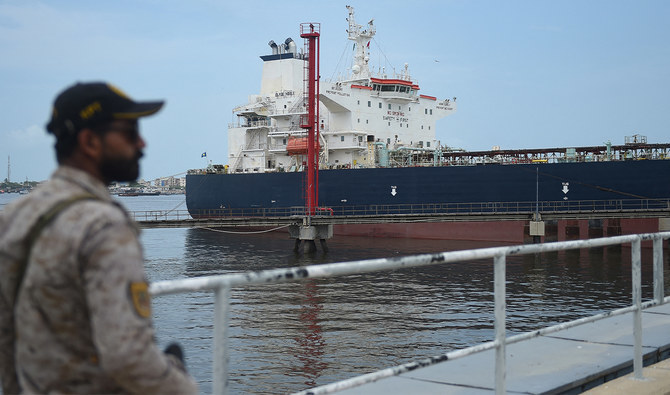By Staff Reporter
ISLAMABAD: Pakistan’s Oil and Gas Regulatory Authority (Ogra) on Saturday directed oil marketing companies (OMCs) to hold 20-day fuel stockpiles and import 140 million liters of petrol as the escalating Iran-Israel conflict risks disrupting global oil supplies.
The decision comes as the ongoing conflict raises fears of interruptions in the flow of oil through key shipping routes, notably the Strait of Hormuz, which Pakistan relies on heavily for imports from the Gulf region.
Nearly 20 million barrels of oil are transported through the Strait of Hormuz every day, accounting for 20 percent of world oil consumption. As regional tensions peak, Iran has threatened to close this chokepoint, posing a threat to energy security. In response, Gulf Cooperation Council (GCC) members have sought other avenues for oil exports to lessen their reliance on the Strait.
Any disruption of the Strait of Hormuz would disrupt energy supply and could lead to an oil price surge well above $100 per barrel, worsening inflation and economic instability globally. The region’s marine logistics will be made even more difficult by the rising insurance costs and shipping hazards.
While current stocks are sufficient to meet demand, Ogra is taking no chances, pressing OMCs to bolster inventories amid growing uncertainty.
“Ogra has confirmed that the country currently holds sufficient stocks of petroleum products to meet existing demand,” a spokesperson for the authority said in a statement Saturday. “However, in view of anticipated future requirements and the prevailing market situation, Ogra has formally advised all oil marketing companies to ensure the maintenance of their mandatory 20-day stock levels, in line with the conditions stipulated in their respective licenses.”
The spokesperson added: “Ogra remains committed to monitoring the situation closely and will continue to take proactive steps to ensure national energy security.”
To preempt any supply crunch, authorities have accelerated fuel imports. An oil vessel carrying roughly 70 million liters of petrol, originally slated to arrive on July 6, has been rescheduled to dock on June 26, officials said. Meanwhile, Pakistan State Oil (PSO) officials confirmed that an additional 140 million liters of petrol will be available by July 1, with contingency plans for emergency tenders if the regional crisis worsens.
The conflict’s fallout is already hitting shipping markets. Marine insurers are now charging 0.2% of the value of a ship for journeys into the Gulf, according to data from the world’s largest insurance broker Marsh McLennan, up from 0.125% prior to Israel’s surprise attack on Iran last week.
There has also been an uptick in war risk insurance rates for the Red Sea, Marsh said, while cover relating to ports in Israel has more than tripled to 0.7%.
The length of time quotes are valid for has been cut to 24 hours from most leaders, Marsh said, down from 48 hours previously.
Similarly, charter rates for large oil tankers navigating the critical Strait of Hormuz have more than doubled following Israel’s military action against Iran, reflecting heightened risk aversion among shipowners and escalating regional tensions.
Data from Clarksons Research indicates that the daily charter rate for a very large crude carrier (VLCC), capable of transporting approximately two million barrels of oil from the Gulf to China, surged from $19,998 on June 11, two days prior to Israel’s strike, to $47,609 on June 19.
Shipowners are deliberately holding back from deploying vessels through the Strait of Hormuz, anticipating “higher earnings in their future” as charter rates climb further.
Rates for chartering a large, long-range 2 tanker carrying refined oil products from the Gulf to China escalated from $21,097 per day on June 11 to $51,879 on June 19, according to Clarksons.
Pakistan National Shipping Corporation (PNSC) officials sounded a stark warning: any closure or disruption in the Strait of Hormuz could deal a severe blow to Pakistan’s oil imports. Operational headaches are already surfacing, with sources reporting temporary GPS signal disruptions in the strait. One PNSC vessel was delayed two hours recently due to a GPS outage, they said.
The government is mobilizing to manage the risks. Last Monday, a high-level meeting reviewed petroleum prices and supply dynamics in light of Israel’s recent attack on Iran and the resulting volatility in global oil markets. Prime Minister Shehbaz Sharif formed a committee, chaired by Finance Minister Muhammad Aurangzeb, to oversee pricing and supply stability. The first meeting, held in the Finance Division, brought together senior officials from key ministries, regulatory bodies, and energy sector experts.
The committee found Pakistan’s current petroleum stocks adequate, with no immediate threat of disruption. Still, members stressed the need for constant monitoring given the fluid situation. A working group will track developments daily, while the full committee will convene weekly to assess the outlook and brief the prime minister.
The committee’s mandate is broad: it will track forward and futures prices of petroleum products, gauge supply chain reliability amid the conflict, and assess foreign exchange risks from price swings in the short and medium term. If needed, it will propose measures to prevent shortages and ensure market supply, while analyzing the fiscal toll of a prolonged crisis. The Petroleum Division will provide logistical support to execute its directives.
“The government remains fully committed to maintaining energy security, stabilizing markets, and protecting the national interest during this critical time,” an official announcement said.
Copyright © 2021 Independent Pakistan | All rights reserved




